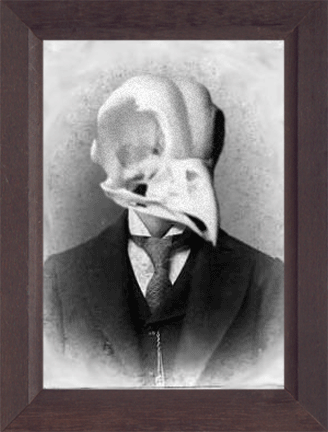
Gregor
Poulart was cultured, agreeable and companionable, fond of society
and of entertaining. He was fond also of his fishing and his gun. The
weight reported of some of his piscatotorial captures seem akin to the
fabulous, while his skill as a sportsman made him a popular fellow of
the once notorious Unadilla Hunt. With rare bonhommie he was no less a
bonvivant, for he loved the gains of his sport, and was an amateur of
good things.
But his economy was not proportionate with his industry, nor his tastes in harmony with his necessities, and so, though his gains were not small, he lived faster than he could afford, and found himself embarrassed in the end..
Moving to New York, he entered upon the importation of wines and liquors, and for some years Gregor Poulart was among the heaviest leaders in their line. But on returning to his store from his weekly fishing trip on the morning after the great fire of December 1835, he discovered that it had been burned to the ground and that his insurers as well as himself were ruined. He left the city and went to Michigan.
He became identified with the growth of that new State, was interested in land sales, and among the first to engage in the mining of copper on Lake Superior. In these transactions he was aided by the fortune he acquired through his second marriage. For having lost his first wife while in New York, he married her cousin, Alexa Hartzog. For a few years he resided in the town of Pollard, to which place he had the honor of giving its name.
And it happened something on this wise: while on one of his fishing excursions, he stopped, as he had often done before, at a "four corners" where the half store, half-tavern had drawn around it a few rude buildings. The inhabitants aspired to a name, and were then assembled to choose one. Some were advocates for antiquity and more for home recollections, but they were quite unable to agree, when someone called out: "Here's Gregor Poulard, the cleverest fellow that ever came to these corners, let's call it after him." At once they agreed and so gave appellation to their town. Detroit is the place of his final residence, where he died Sept 29, 1855.
But his economy was not proportionate with his industry, nor his tastes in harmony with his necessities, and so, though his gains were not small, he lived faster than he could afford, and found himself embarrassed in the end..
Moving to New York, he entered upon the importation of wines and liquors, and for some years Gregor Poulart was among the heaviest leaders in their line. But on returning to his store from his weekly fishing trip on the morning after the great fire of December 1835, he discovered that it had been burned to the ground and that his insurers as well as himself were ruined. He left the city and went to Michigan.
He became identified with the growth of that new State, was interested in land sales, and among the first to engage in the mining of copper on Lake Superior. In these transactions he was aided by the fortune he acquired through his second marriage. For having lost his first wife while in New York, he married her cousin, Alexa Hartzog. For a few years he resided in the town of Pollard, to which place he had the honor of giving its name.
And it happened something on this wise: while on one of his fishing excursions, he stopped, as he had often done before, at a "four corners" where the half store, half-tavern had drawn around it a few rude buildings. The inhabitants aspired to a name, and were then assembled to choose one. Some were advocates for antiquity and more for home recollections, but they were quite unable to agree, when someone called out: "Here's Gregor Poulard, the cleverest fellow that ever came to these corners, let's call it after him." At once they agreed and so gave appellation to their town. Detroit is the place of his final residence, where he died Sept 29, 1855.
 |
 |
||||